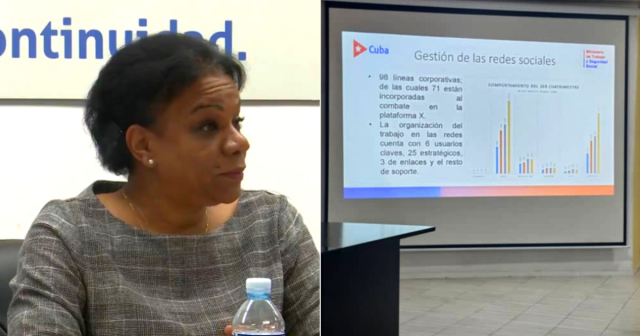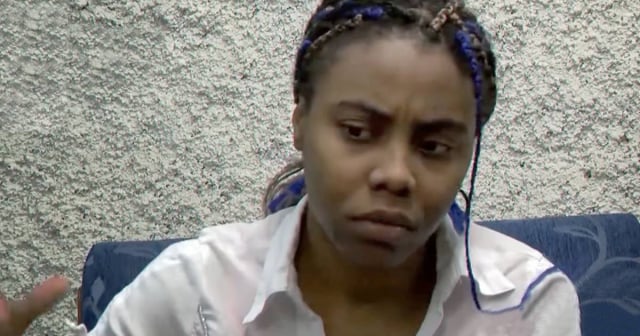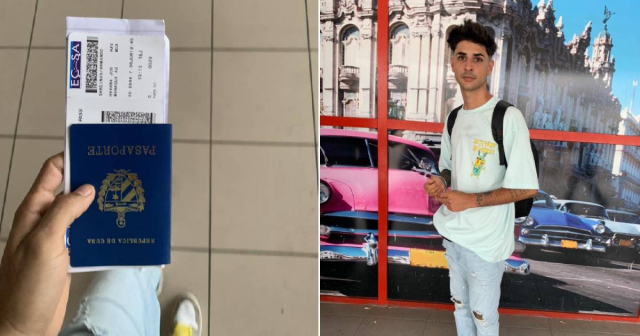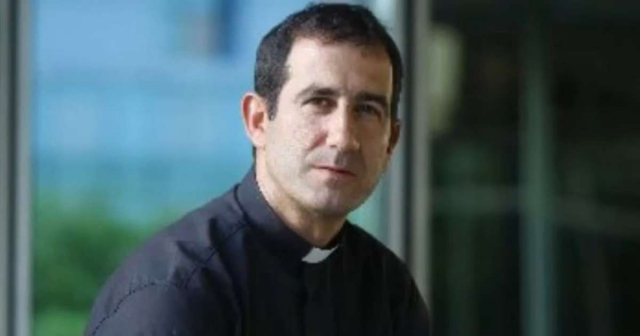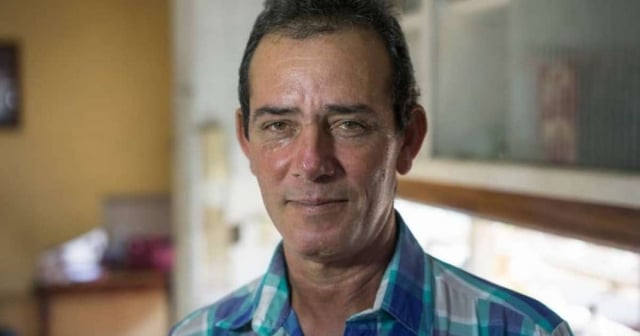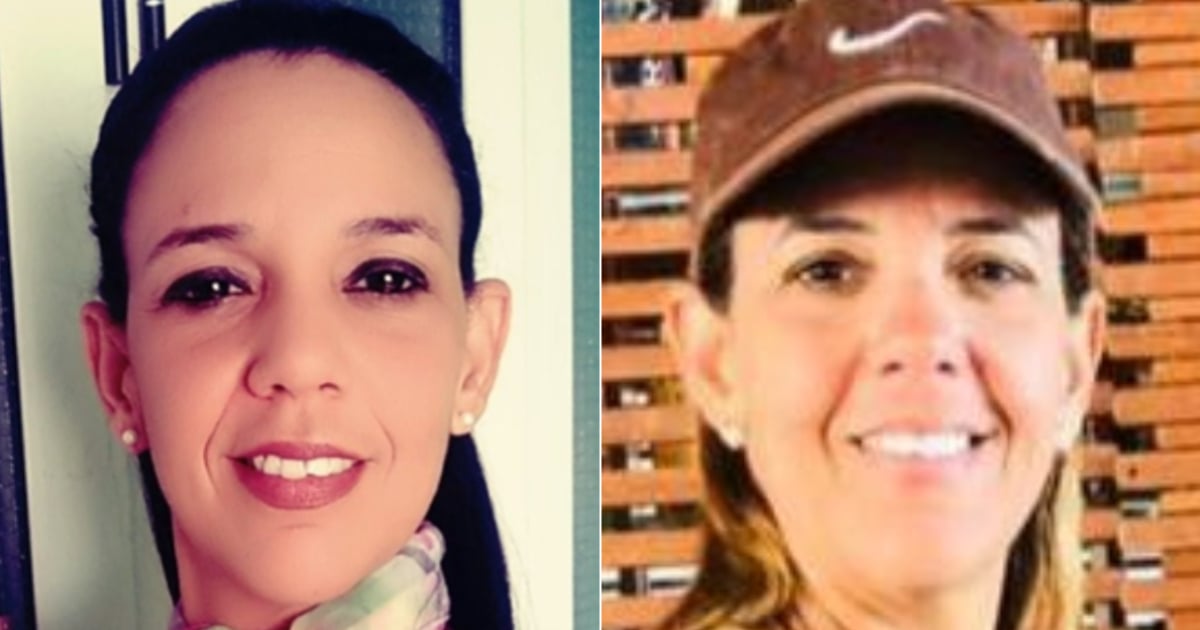
After being part of the repressive machinery of the Cuban regime that imprisoned over a thousand peaceful protesters on July 11, 2021 (11J), a prosecutor from Camagüey is requesting a visa to emigrate to the United States.
This is about Rosabel Roca Sampedro, who was a prosecutor at the Municipal Court of Camagüey before emigrating to Mexico with her daughter, a country from which she is applying for a visa to enter the USA through the CBPOne application, as Martí Noticias was able to find out.
Through sources within US immigration who requested not to be identified, the outlet learned about the case of Roca Sampedro, a prosecutor who requested prison sentences for protesters from the historic July 11 demonstrations, as well as other opposition members from Camagüey.
According to complaints from activists on social networks, the prosecutor left Cuba with her young daughter on a date that has not been determined. According to Martí Noticias, at this moment she is waiting for the United States immigration authorities to grant her an appointment to appear at the border and request political asylum.
Roca Sampedro, who currently resides in Mexico, deleted a profile on her social media where she supposedly showed her closeness to the Cuban regime. The non-governmental organization Prisoners Defenders claimed to have documented the repressive history of the official from the Cuban regime's Justice administration.
“The case is number 26 of 2022, from the Preliminary Phase File 31 of 2021, for Attempt and Disobedience, instructed by the prosecutor Rosabel Roca Sampedro. We have it in our archives. Due to the work of that prosecutor, four innocent people were sentenced from 4 years and 4 months in prison to 3 years and 6 months in jail,” Javier Larrondo, director of the NGO, told the media outlet.
Specialized in documenting human rights violations in Cuba, the organization stated that the prosecutor was "known in the Municipal Court of Camagüey," among others, by the victims of the repression on July 11th, as well as by the opposition figure Barbaro de Cespedes, the Cuban Patriot.
Up to now, Prisoners Defenders points to Roca Sampedro as the prosecutor who sent Lesyani Heredia Salazar (22 years old at the time of her arrest), Adrián Quesada Flores (32), Yadisley Rodríguez Ramírez (34), and Geovanis Sépulveda Martínez (43) to prison. All of them are considered political prisoners by the organization.
"If the prosecutor wants to redeem her crimes, given that arbitrary imprisonment is a crime against humanity in which she would have participated and whose authors would be the Castro family, the first thing she must do is summon the media and tell absolutely everything she has done for the regime, what the regime forces to do, and its operation," Larrondo said. "Her victims are still in prison. She cannot redeem herself in any way without at least giving everything to correct to some extent the harm she has done," he added.
On his part, Bárbaro de Céspedes stated that Roca Sampedro was the prosecutor who imposed a year and six months of imprisonment on him for charges of disobedience and incitement to commit crimes, due to his involvement in the massive protests on July 11, and for a post the activist made on Facebook directly calling for people to take to the streets.
"That lady was very rude to me. She didn't even let me speak. When they tried to silence me during the trial, I defended myself with the Constitution. I was imprisoned for a year and eight months because of her... All the time, she showed repulsion towards me and what I represented. It would give me great satisfaction if she were to be deported from this country. She does not deserve to live in freedom," he added.
Justicia 11J, another organization dedicated to denouncing repression and raising awareness about the political prisoners of 11J, also contributed one of the sentences issued after the protests and confirmed that she is among the prosecutors who judged the demonstrators. In the document, the signature of Rosabel Roca Sampedro appears.
According to Martí Noticias, Roca Sampedro (42 years old) would have a daughter living in Houston, Texas, a place where she would presumably go to live if allowed to enter the United States. Martí Noticias managed to briefly speak with the prosecutor's contact in Houston, Adrián Díaz, who admitted to knowing her but refused to provide further statements.
Exodus of repressors from the Cuban regime
The case of Roca Sampedro once again puts the spotlight on the trickle of officials, leaders of the regime, and their relatives who have emigrated from the island in recent times.
At the end of May, the case of the Villa Clara judge Melody González Pedraza became known, as the U.S. authorities denied her entry into the country after arriving at Tampa International Airport in Florida with a humanitarian parole.
According to Martí Noticias, González Pedraza's record included the conviction for "assault" of four Cuban youths under 30 years of age who on November 18, 2022, threw Molotov cocktails at the homes of police chiefs and regime officials in the municipality of Encrucijada.
After being denied humanitarian parole, González Pedraza was forced to seek political asylum and is currently under police custody. The judge, detained in Broward, is scheduled to have an asylum hearing on June 12th where it will be decided whether she will be deported to Cuba.
At the beginning of March, the President of the Supreme Court of Cuba, Rubén Remigio Ferro, applauded the displays of support heard from his subordinates during a meeting of the Artemisa courts.
With a balance heavily favoring the departure of active prosecutors over the rate of graduates, and the pressure this brings to the administration of justice, the high-ranking official of the Cuban totalitarian regime highlighted the words heard in the conclave, alluding to the commitment of jurists to defend a legal-political order that keeps more than a thousand political prisoners in the country's jails.
"Excited and willing, that's how judges and workers from the Artemisa courts expressed themselves at their annual meeting. 'Unity', 'vocation', 'I continue and will continue here because I want to and I like it' were the most heard expressions. 'How good!!!' Remigio Ferro stated on his social networks."
The migration crisis caused by the mismanagement of the so-called "continuity" of Miguel Díaz-Canel has led hundreds of thousands of Cubans to embark on an unprecedented exodus in the country's history. Among the professionals who have left their lives in Cuba, there are also officials and workers from the justice administration.
A report from the official press pointed out that Cuban prosecutors are abandoning the robe and analyzed the case of Ciego de Ávila, one of the territories where the decrease in the number of legal professionals is most noticeable.
Between 2022 and 2023, there was a significant exodus of prosecutors in Ciego de Ávila, with 28 resignations exceeding the 22 that occurred in the previous five years. This situation has led to the Provincial Prosecutor's Office operating with just over half of the staff needed for its 10 municipalities.
Faced with the difficulty of filling the 93 positions, currently occupied by 52 prosecutors, a debate has arisen within the judicial system of the Cuban regime about possible solutions to alleviate this crisis.
What do you think?
COMMENTFiled under:

